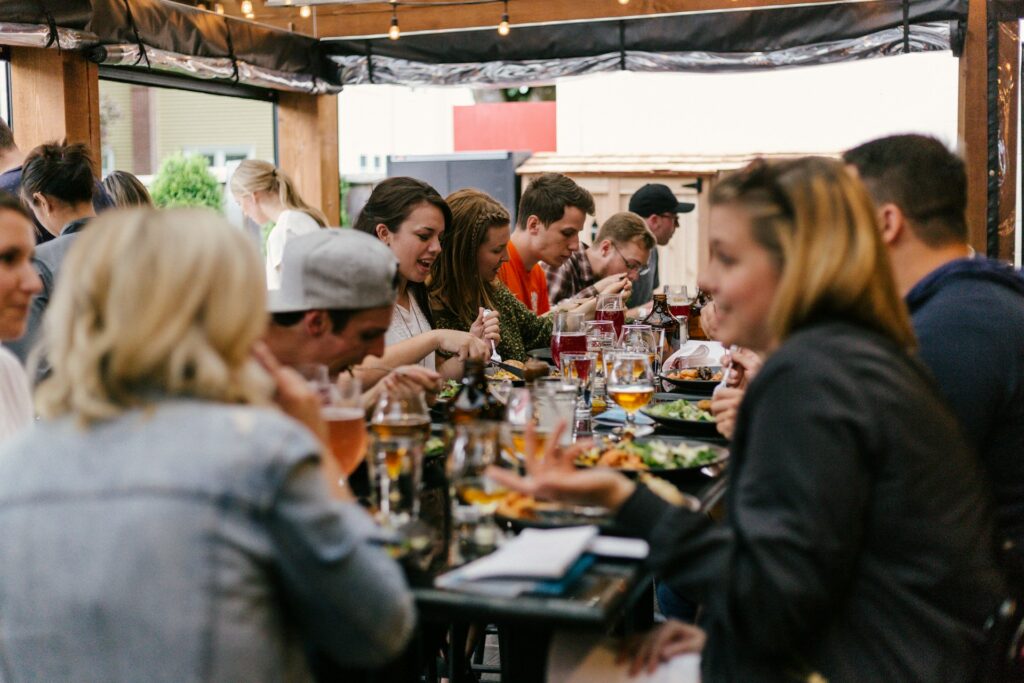Managing food waste at events is a significant issue that is deceptively difficult to solve. According to BCD Meetings & Events, the average event wastes between 15% – 20% of the food it produces, which equates to 1.3 billion tons annually. This is a staggering amount of waste, and it’s clear that event organisers need to take action to reduce this figure.
But what’s driving this amount of waste, and what can event managers do about it?
The Fear Of Running Out (FORO)
One of the main reasons for food waste at events is the fear of running out (FORO). Event organisers often over-order food to ensure that there is enough for everyone. After all, the worst nightmare for bars and food huts would be to get to the last day of an event and have run out of supplies! However, this often results in a significant amount of food being wasted, especially for goods that have a short shelf life.
Strategies For Reducing Food Waste At Events
There are several strategies that event organisers can implement to reduce food waste. Here are six tips to get you started.
Bring Guests Into The Conversation From The Outset:
If guests know the amount of waste that events produce, they are more likely to support efforts to reduce it. This could involve sharing dietary requirements or making conscious choices about the amount of food they consume.
Get The Numbers Right:
Knowing the number of attendees and their food preferences can help to reduce the amount of waste. Technology can play a big part in this, with event apps being used to collect menu data.
Create New Menu Formats:
Consider creating menus prioritising plant-based foods, with meat as a side or garnish. This reduces waste and caters to the increasing number of vegetarians, vegans, and health-conscious guests.
Use Everything:
Educate guests about the importance of using all parts of the food. This could involve cooking with ingredients often considered ‘wasteful’, such as broccoli stems or whole kale.
Get Chefs Out Into The Event:
Having chefs at cooking stations can push different food options and regulate waste in real time. This not only adds to the event experience but also helps to reduce waste.
Share The Numbers:
Sharing the results of food waste reduction initiatives can reward and remind delegates of the importance of reducing waste.
The Importance Of Reducing Food Waste At Events
Reducing food waste at events is not just about being environmentally friendly. It’s also about being financially responsible. By reducing the amount of wasted food, event organisers can save money and make their events more sustainable.
FAQs
Q: How Can I Reduce Food Waste At My Event?
A: There are several strategies you can implement, including getting accurate numbers of attendees, creating new menu formats, and educating guests about the importance of reducing waste.
Q: What Is FORO?
A: FORO stands for ‘Fear of Running Out’. It’s a term used in the event industry to describe the fear that there won’t be enough food for all attendees, leading to over-ordering and waste.
Q: How Can Technology Help To Reduce Food Waste At Events?
A: Technology can be used to collect data about attendees’ food preferences and dietary requirements. This information can then be used to order the correct amount of food, reducing waste.
Q: What Is The Environmental Impact Of Food Waste At Events?
A: Food waste at events contributes to the 1.3 billion tons of food that is wasted globally each year. This waste has a significant environmental impact, contributing to greenhouse gas emissions and wasting valuable resources.
Speak to DCW about your event food waste management and disposal
Managing food waste at large-scale events is a significant challenge, but it’s one that event organisers must tackle. By implementing strategies to reduce waste and educating guests about the importance of sustainability, we can make our events greener and more responsible.
For more information on managing waste at events, speak to the DCW team today on sales@dcw.co.uk or 01392 690 193.
